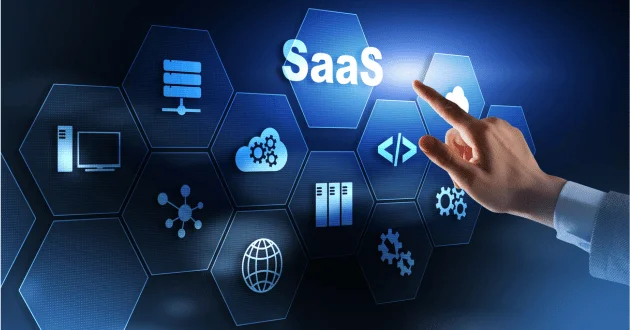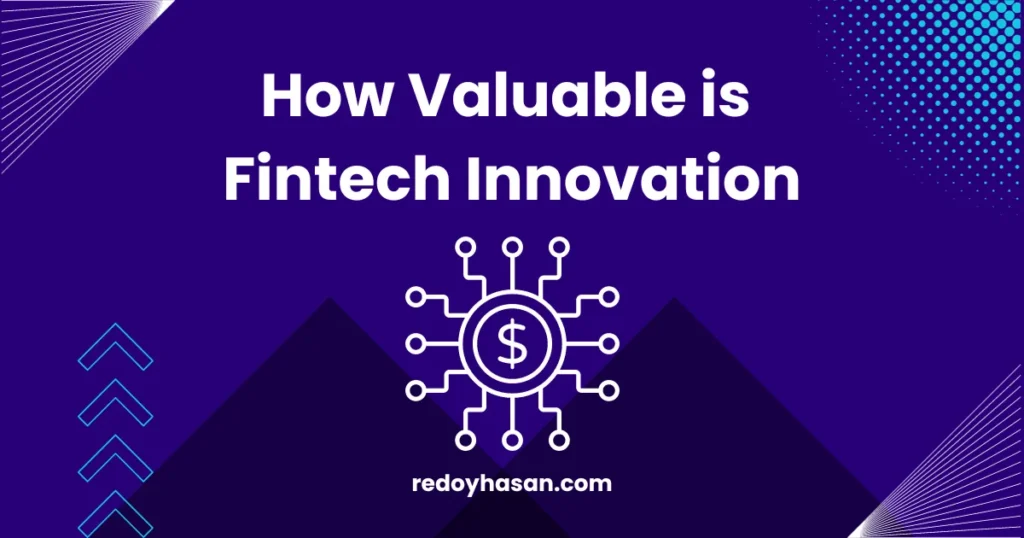
The financial industry has undergone a significant transformation in recent years, thanks to the emergence of innovative technologies. One such advancement that has gained immense popularity is Fintech SaaS, an acronym that stands for Financial Technology Software as a Service. In this blog post, we will delve deep into the world of Fintech SaaS, exploring its definition, key features, benefits, and how it is revolutionizing the financial industry.
Read more article : What is a Fintech App
Defining Fintech SaaS
Fintech SaaS refers to cloud-based software solutions designed specifically for financial institutions and companies to streamline their operations and enhance their overall efficiency. These software applications are hosted on remote servers, allowing users to access them through the internet without the need for complex installations or hardware infrastructure. Fintech SaaS offers a wide range of functionalities, including but not limited to account management, payment processing, risk assessment, compliance management, and data analytics.
Key Features of Fintech SaaS
Fintech SaaS platforms come equipped with several key features that make them an attractive choice for financial institutions. Some of these features include:
1. Scalability
Fintech SaaS solutions are designed to scale effortlessly as per the needs of the users. With the ability to handle a growing user base and increasing transaction volumes, these platforms can adapt to the changing requirements of financial institutions without compromising performance.
2. Security and Compliance
Given the sensitive nature of financial data, security is of utmost importance in Fintech SaaS applications. These platforms incorporate robust security measures such as encryption, multi-factor authentication, and data backups to protect sensitive information from unauthorized access. Additionally, they also comply with various industry regulations and standards, ensuring that financial institutions remain compliant with legal obligations.
3. Integration Capabilities
Fintech SaaS solutions are designed to seamlessly integrate with existing systems and technologies used by financial institutions. This enables a smooth transition and eliminates the need for significant changes or disruptions to existing workflows. The ability to integrate with other software applications allows for enhanced efficiency and improved data sharing across different departments.
4. Analytics and Reporting
Fintech SaaS platforms often come equipped with advanced analytics and reporting capabilities. These features enable financial institutions to gain valuable insights from their data, identify trends, make data-driven decisions, and generate comprehensive reports. The availability of real-time data and analytics helps businesses stay ahead of the competition and adapt to market changes more effectively.
5. Automation and Workflow Optimization
Fintech SaaS solutions automate various manual processes within financial institutions, reducing human error and improving overall operational efficiency. By streamlining workflows and eliminating redundant tasks, these platforms enable employees to focus on more critical activities that require human intervention. This automation not only saves time but also reduces costs associated with manual labor.

Benefits of Fintech SaaS
Implementing Fintech SaaS solutions can bring numerous benefits to financial institutions. Let’s explore some of the key advantages:
1. Cost Savings
One of the primary benefits of Fintech SaaS is its cost-effectiveness. By leveraging cloud-based solutions, financial institutions can significantly reduce their upfront investment in hardware infrastructure and software licenses. With a subscription-based pricing model, organizations pay only for the services they use, eliminating the need for large upfront capital expenditures.
2. Accessibility and Mobility
Fintech SaaS platforms offer anytime, anywhere access to financial services. As long as there is an internet connection, users can access the software from various devices, including desktops, laptops, tablets, and smartphones. This accessibility allows employees to work remotely, collaborate with team members across different locations, and provide seamless customer experiences.
3. Faster Implementation and Time-to-Market
Traditional software implementations often involve lengthy deployment cycles, requiring substantial time and resources. In contrast, Fintech SaaS solutions can be implemented quickly, allowing financial institutions to start using them within a short period. This accelerated implementation enables organizations to bring new products and services to market faster, gaining a competitive edge in the rapidly evolving financial landscape.
4. Continuous Updates and Upgrades
With Fintech SaaS, financial institutions no longer need to worry about software updates or upgrades. The responsibility lies with the service provider, who regularly releases updates and enhancements to the software. This ensures that organizations always have access to the latest features and functionalities without the need for manual installations or system downtime.
5. Enhanced Collaboration and Customer Experience
Fintech SaaS solutions often include collaboration tools that enable employees to work together seamlessly. This fosters better communication, knowledge sharing, and teamwork within financial institutions. Additionally, these platforms also provide a unified view of customer data, allowing employees to deliver personalized experiences and cater to individual needs effectively.
Use Cases of Fintech SaaS
Fintech SaaS finds applications across various segments within the financial industry. Let’s explore some prominent use cases:
1. Banking and Lending
Banks and lending institutions can leverage Fintech SaaS solutions for activities such as customer onboarding, loan origination, risk assessment, credit scoring, and loan servicing. These platforms streamline processes, reduce paperwork, improve decision-making capabilities, and enhance overall customer experience.
2. Payment Processing
Fintech SaaS platforms play a crucial role in facilitating seamless payment processing for businesses of all sizes. From online payments to mobile wallets and peer-to-peer transfers, these solutions provide secure and efficient payment processing capabilities while adhering to industry standards.
3. Wealth Management
Fintech SaaS solutions are revolutionizing the wealth management industry by offering comprehensive tools for portfolio management, asset allocation, financial planning, risk assessment, and performance reporting. These platforms automate routine tasks, empower advisors with real-time insights, and enable better client interactions.
4. Insurance Technology (Insurtech)
Insurtech companies utilize Fintech SaaS solutions to streamline insurance processes such as policy administration, claims management, underwriting, risk assessment, and fraud detection. These platforms help insurers improve operational efficiency, enhance customer experiences, and drive innovation in the insurance industry.
5. Regulatory Compliance
Fintech SaaS plays a vital role in ensuring regulatory compliance within the financial industry. These solutions offer features like anti-money laundering (AML) checks, Know Your Customer (KYC) verification, identity verification, fraud prevention systems, and data privacy compliance tools.
Future Trends in Fintech SaaS
As technology continues to evolve rapidly, several trends are shaping the future of Fintech SaaS:
1. Artificial Intelligence (AI) and Machine Learning (ML)
The integration of AI and ML technologies into Fintech SaaS platforms is revolutionizing decision-making processes within financial institutions. AI-powered chatbots are becoming increasingly common for customer support services, while ML algorithms help in risk assessment and fraud detection.
2. Blockchain Technology
Blockchain technology has the potential to transform various aspects of the financial industry by providing secure transactions, reducing intermediaries, enhancing transparency, and streamlining complex processes like cross-border payments and smart contracts.
3. Open Banking
Open banking initiatives are gaining traction globally, encouraging financial institutions to share customer data securely with third-party providers through APIs. Fintech SaaS platforms play a crucial role in enabling open banking by providing secure data exchange capabilities while maintaining compliance with privacy regulations.
4. Personalization and Customer-Centric Approaches
With increased competition in the financial industry, personalization has become a key differentiator for organizations seeking to provide exceptional customer experiences. Fintech SaaS platforms are evolving to incorporate advanced analytics and machine learning capabilities to deliver personalized services tailored to individual customer needs.
5. Cybersecurity Enhancements
As cyber threats continue to evolve in sophistication, cybersecurity remains a top concern for financial institutions. Fintech SaaS providers are investing heavily in enhancing security measures by incorporating advanced encryption techniques, anomaly detection systems, biometric authentication methods, and real-time threat intelligence.
Conclusion
Fintech SaaS has emerged as a game-changer in the financial industry by offering cloud-based software solutions that streamline operations while keeping pace with evolving customer expectations. With its numerous benefits such as scalability, cost savings, security enhancements, and automation capabilities, Fintech SaaS is revolutionizing how financial institutions operate in an increasingly digital world. As technology continues to advance at an unprecedented pace, it is imperative for financial organizations to embrace these innovative solutions to stay competitive and deliver exceptional customer experiences in the modern era of finance.


